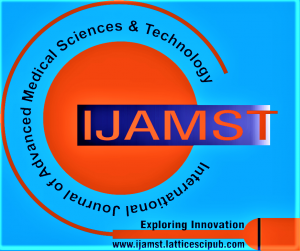Misconduct/ Plagiarism:
Plagiarism is stealing someone’s intellectual property and can include substantial unattributed copying of text1. Unauthorised use of ideas or unique methods obtained through privileged communication, such as a grant or article review, is also considered theft or misappropriation of intellectual property2.
- Redundant: Submitting a study to multiple journals or publishing its findings elsewhere without proper referencing, permission, or justification is considered redundant publication or “self-plagiarism.”
- Fabrication: Fabrication involves creating false data or results and documenting or sharing them.
- Misconduct: Research misconduct can involve falsifying information, misrepresenting data, or plagiarising at any process stage.
- Falsification: Falsification involves altering research materials, equipment, processes, or data in a way that misrepresents the factual findings in the research record.
- Plagiarism: Plagiarism is using someone else’s work as your own without giving credit. It can be full, partial, or self-plagiarism. Full is copying without changes, partial is rephrasing, and self is reusing work.
Misconduct:
It is imperative that the chief editor and editorial board members, alongside the international scientific committee, take a firm stance against any form of misconduct. They must ensure that authors and reviewers know the ethical standards expected of them and take proactive measures to prevent misconduct. Additionally, they must remain alert and promptly respond to misconduct allegations, ensuring they are dealt with appropriately.
Journal strongly condemns unethical practices like plagiarism. The journal uses advanced anti-plagiarism tools to verify the authenticity of articles submitted. If any article is found to be plagiarised during the review process, it will be immediately rejected. If discovered after publication, an investigation will be conducted, and if confirmed, a bi-directional statement will be published online, and the article will be retracted3,4.
The International Journal of Advanced Medical Sciences and Technology (IJAMST) strongly opposes any form of unethical behaviour, such as copying or plagiarism. To ensure that all articles submitted for publication are original, the journal uses advanced anti-plagiarism tools to cross-check them. Any article found plagiarised during the initial review process will be immediately rejected and not published in the journal5. In the case of discovering plagiarism in a published article, the chief editor will initiate an investigation, potentially with the help of a committee. In cases of excessive plagiarism, the journal will contact the author’s institution, organisation, university or funding agency. If the misconduct is verified, the International Journal of Advanced Medical Sciences and Technology (IJAMST) will release a statement online that links back and forth from the original article. The statement will indicate the plagiarism and reference the material that was plagiarised. Additionally, the reports containing plagiarism will be marked on each page of the PDF, and the article may be formally retracted after the extent of plagiarism is determined.
Ethical Standards and Action for Plagiarism:
The International Journal of Advanced Medical Sciences and Technology (IJAMST) strictly prohibits any articles containing plagiarised material. Therefore, the journal holds ethical standards for authors, requiring original and plagiarism-free articles.
If an author is accused of plagiarism in the published article, the editor will contact them within three weeks for clarification. If the author fails to respond within the given time limit, this clarification can be forwarded to the committee responsible for further action. In that case, the chief editor will contact to which the author is affiliated to take strict action against them. The International Journal of Advanced Medical Sciences and Technology (IJAMST) will support the original author if an article is found to be plagiarised from previous work. The International Journal of Advanced Medical Sciences and Technology (IJAMST) may take immediate action or follow the committee’s additional measures.
- The journal will retract the PDF, turn off links to the article, and add “plagiarised” to the title.
- The journal will deactivate the author’s account, prohibit future submissions for 3, 5, or 10 years, or permanently ban the author.
- The journal might showcase a list of authors and their complete contact information on their website.
References:
- María Francisca Abad-García, Plagiarism and predatory journals: A threat to scientific integrity, Anales de Pediatría (English Edition), Volume 90, Issue 1, 2019, Pages 57, e1-57.e8, ISSN 2341-2879, DOI: https://doi.org/10.1016/j.anpede.2018.11.006
- ORI Policy on Plagiarism
- WAME – Plagiarism Policy
- COPE- Publication ethics and Misconduct
- International Committee of Medical Journal Editors (ICMJE) – Scientific Misconduct, Expressions of Concern, and Retraction
- Strictly Adheres to the Editorial and Publishing Policies of Lattice Science and Publication (LSP)
